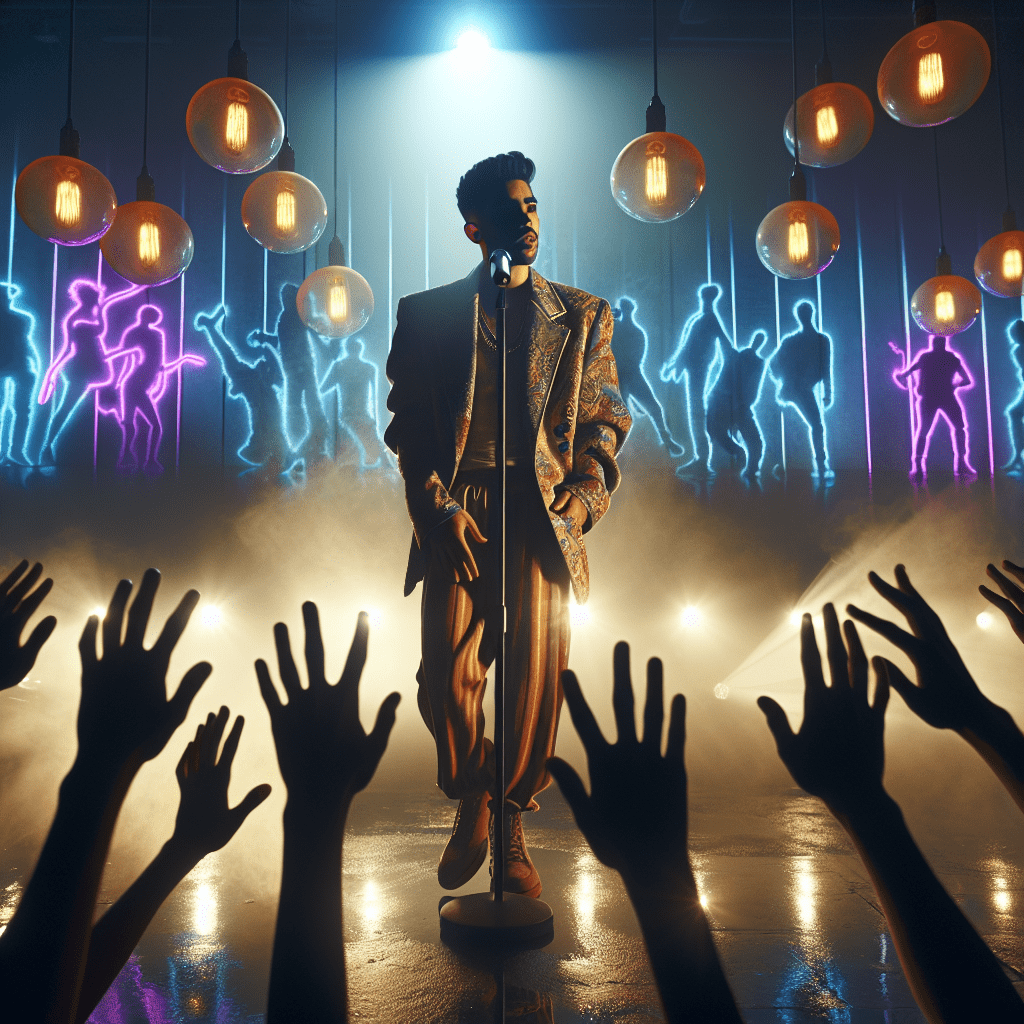The Cultural Impact and Musical Journey of Bad Bunny
Bad Bunny, the stage name of Benito Antonio Martínez Ocasio, is a Puerto Rican Latin trap and reggaeton singer whose resonating vocals, stylish presentation, and planetary fame have marked a significant moment in the annals of global contemporary music. Not only has he been a prominent figure through his music, but his influence extends into fashion, social activism, and representation for the Latinx community. This article explores the evolution of Bad Bunny’s career, his influence on music and culture, and the considerable impact he’s had on the industry.
The Emergence of Bad Bunny: A New Voice in Latin Trap
Bad Bunny’s rise to prominence began in 2016 when his song “Diles” caught the attention of music producer DJ Luian and led to a deal with the record label Hear this Music. Born and raised in Puerto Rico, Bad Bunny’s sound was molded by influences from a wide range of genres, from salsa to rock, fused with the urban trap sounds that are prominent in Puerto Rico’s music scene.
His style both musically and in persona is closely identified with urbano music—a melange encompassing reggaeton, Latin trap, and hip-hop. With an ability to transition between emotional balladry to boastful verses, he quickly became noted for his flexibility across these genres to create songs full of life and vibes resonating with many.
Charismatic Influence: Bad Bunny’s Social Media Savvy
Bad Bunny capitalized on the digital revolution within the music industry. With mastery over social media platforms like Instagram and SoundCloud, he became adept at directly engaging his growing fanbase. This connection contributed greatly to building momentum before releasing tracks through more traditional avenues. His lively personality extends into these virtual spaces where millions follow not only his music but also his fashion choices and salsa-drenched dance tendrils.
Mainstream Success: Bringing Latin Trap to the Forefront
2017 marked a pivotal year as Bad Bunny was featured in Becky G’s single “Mayores,” which vaulted both artists into greater Latin charts success. The following year saw him collaborating with Cardi B and J Balvin on the track “I Like It,” which surged to number one on the US Billboard Hot 100. These strategic collaborations bridged languages and cultures from English hits to Latin smash success stories.
Musical Evolution: From Perreo to Popularity
Continuing to ride waves of success, Bad Bunny released “X 100PRE,” his debut album, which signaled his deep-rooted intentions within the industry by delivering a complex weave of genres that defied singular classification. Each subsequent release with albums like “YHLQMDLG” (I do whatever I want) and “El Último Tour Del Mundo,” saw him experimenting with new sounds while maintaining his signature delivery.
“El Último Tour Del Mundo,” notably made history as it became the first all-Spanish-language album to top the US Billboard 200—underscored how Latin American influences started commanding mainstream listener’s attention in entirely new ways.
Cultural Significance: Changing Tides in Representation
The global influence of Bad Bunny also plays a role in shaping conversations about masculinity, particularly in Latin American cultures. Known for confronting machismo through attire that challenges gender norms or by addressing social issues within his lyrics, Bad Bunny’s persona reciprocates his belief system toward open expressions of identity.
Fashion and Activism: Beyond Music
In addition to his musical contributions, Bad Bunny has impacted fashion trends, introducing vibrant colors and distinctive designs often seen as counter-cultural. This distinct style became emblematic of personal freedom among fans and served as an allyship trend within queer communities which often felt represented by his transformative approach.
His activism extends into political arenas too—he paused production at a critical juncture to address civil unrest in Puerto Rico and advocate for governmental change. Bad Bunny’s voice became central during protests that led to the resignation of Governor Ricardo Rosselló in 2019. His platform continues to highlight social injustices and amplify marginalized voices.
Notes
*Image description*
This could be an image featuring Bad Bunny amid a dynamic concert setting, standing against theatrical lighting – orbs of incandescent hues bathe him while hands from an unseen audience arc towards the stage. He might wear eclectic apparel representative of his distinguishing style while backdrop screens flash neon urban artistry signatures murmured behind him along with shadowy yet vigorous figures of dancers mid-rhythm.
